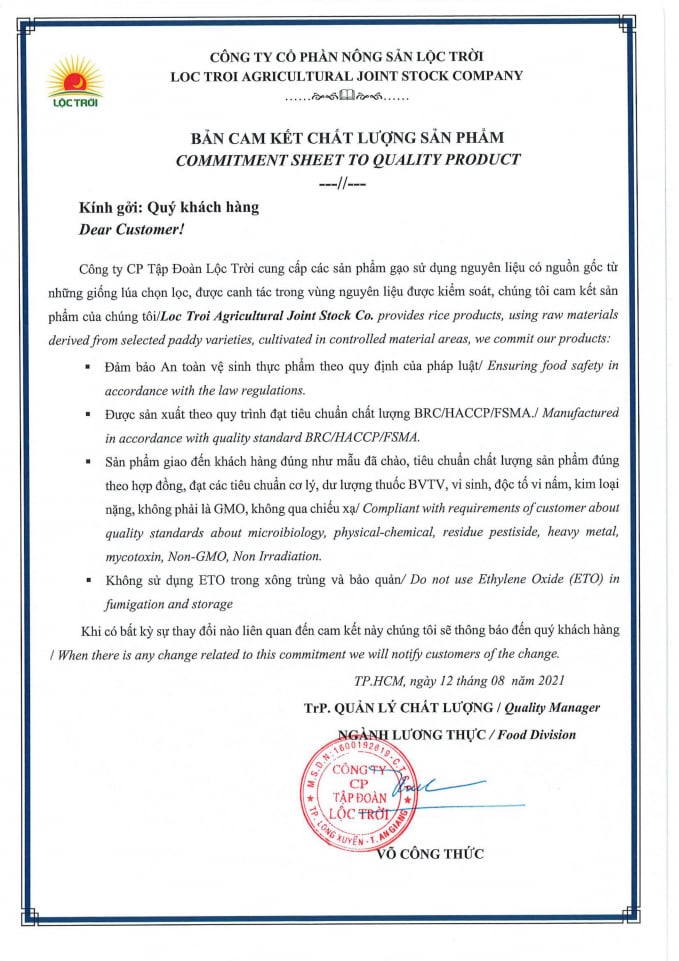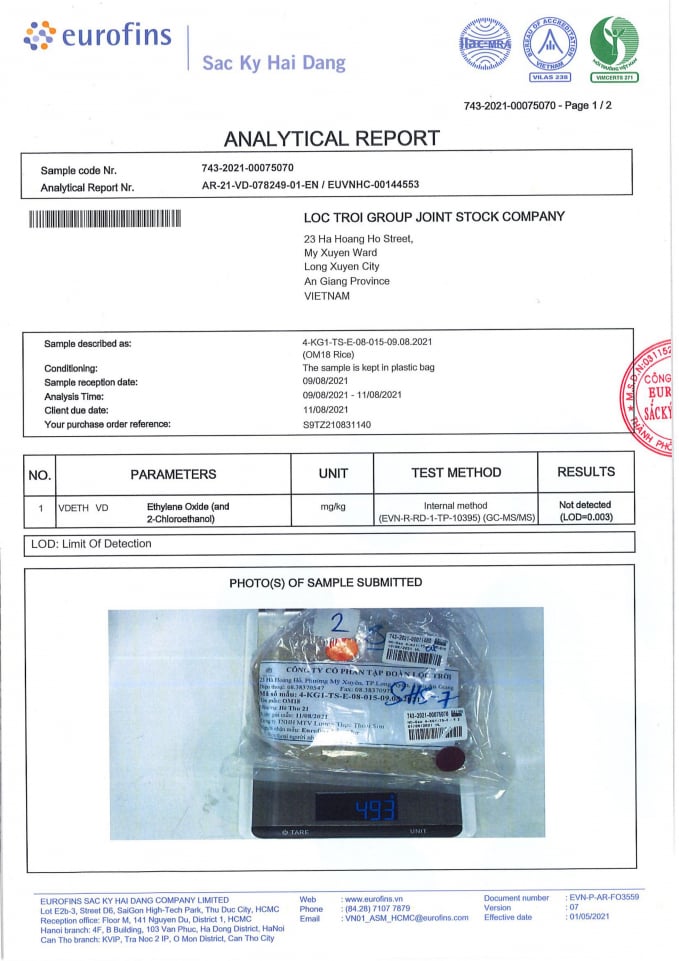November 28, 2025 | 04:16 GMT +7
November 28, 2025 | 04:16 GMT +7
Hotline: 0913.378.918
November 28, 2025 | 04:16 GMT +7
Hotline: 0913.378.918

Loc Troi's commitment sheet to quality product.
Ethylene Oxide (ETO or EO) is a toxic, highly reactive, and flammable chemical substance that is gaseous in nature. It is permitted in a number of nations for the control of insects in certain agricultural goods, as well as for the disinfection of food components and products (especially for spices and herbs such as paprika, pepper and cinnamon).
However, once ETO molecules come into contact with food, they quickly produce metabolites. Although no conclusive evidence of carcinogenicity has been shown, many studies have demonstrated the metabolites' genotoxic potential.
ETO is banned in Europe and is categorized as group 1B for mutagenicity and reproductive toxicity, and class 3 for acute toxicity, according to European Council rules.

Analytical report for a product from Loc Troi.
As the largest rice exporter in Vietnam, particularly to the European market, Loc Troi adheres to stringent standards for varieties selection, cultivation, harvesting, and processing, while also requiring suppliers and partners to refrain from using ETO in the manufacturing process.
From 2021, Loc Troi undertakes yearly product audits in conjunction with the adoption of ERP in operations and management in order to be open about its commitments to European customers and partners.
Translated by Linh Linh
/2025/11/27/3830-1-152901_403.jpg)
(VAN) Dong Nai is developing its key crop areas, expanding planting area codes, and applying high technology to increase the value of agricultural products, aiming at a green and sustainable agriculture.

(VAN) Tay Ninh’s livestock sector is undergoing a major transformation, applying high-tech, closed-loop circular models to build sustainable value chains.
/2025/11/26/3627-4-082628_818.jpg)
(VAN) From a small café on the red basalt highlands, Le Van Hoang started a business with clean coffee, building Enjoi Coffee into a symbol of organic agriculture in the Lam Dong plateau.
/2025/11/25/0045-1-135246_13.jpg)
(VAN) Ca Mau is researching a model of sea-encroaching embankments combined with viaducts and logistics service zones, aiming both to prevent erosion and create land funds for marine economic development.

(VAN) The information was shared at the seminar 'Urban Agriculture - Solutions for Developing Green Spaces,' organized by the Kinh te & Do thi Newspaper and the Biotechnology Center of Ho Chi Minh City.
/2025/11/19/4141-2-132831_216.jpg)
(VAN) One of Japfa's outstanding solutions is implementing digital transformation and artificial intelligence (AI) to optimize operations, enhance productivity, and advance sustainable development.
/2025/11/19/4847-1-093540_448.jpg)
(VAN) The Gia Lai Provincial People’s Committee had a working session with the delegation of the U.S. Department of Agriculture, the State of Idaho, and representatives of the State's leading enterprises.